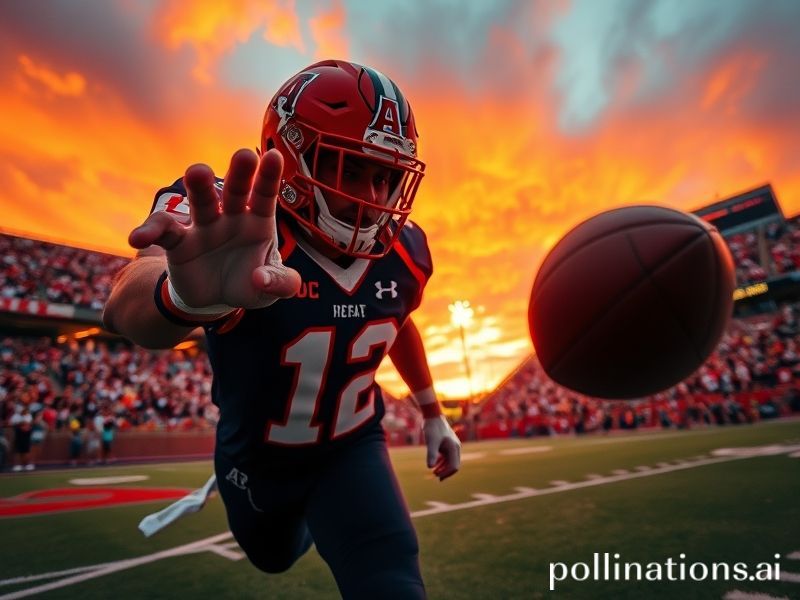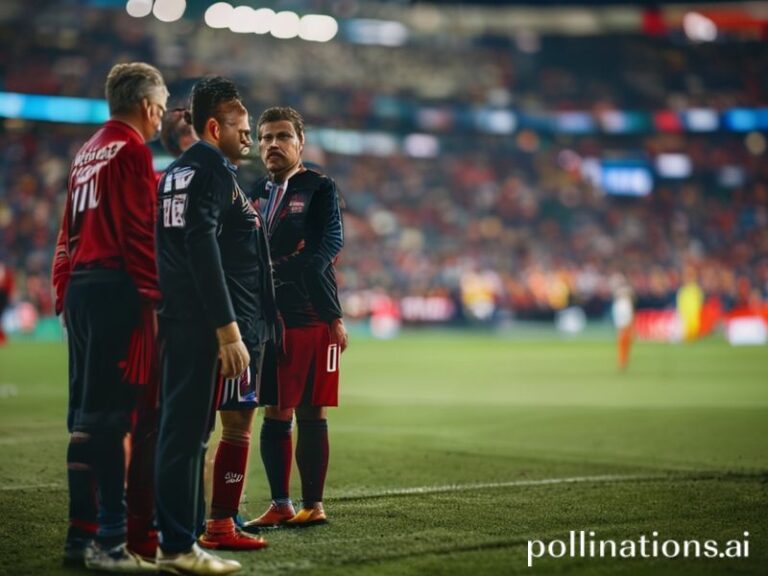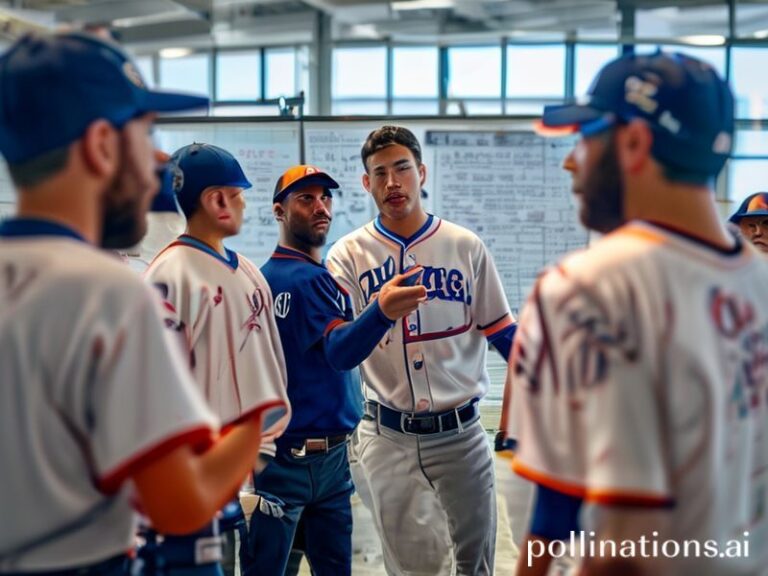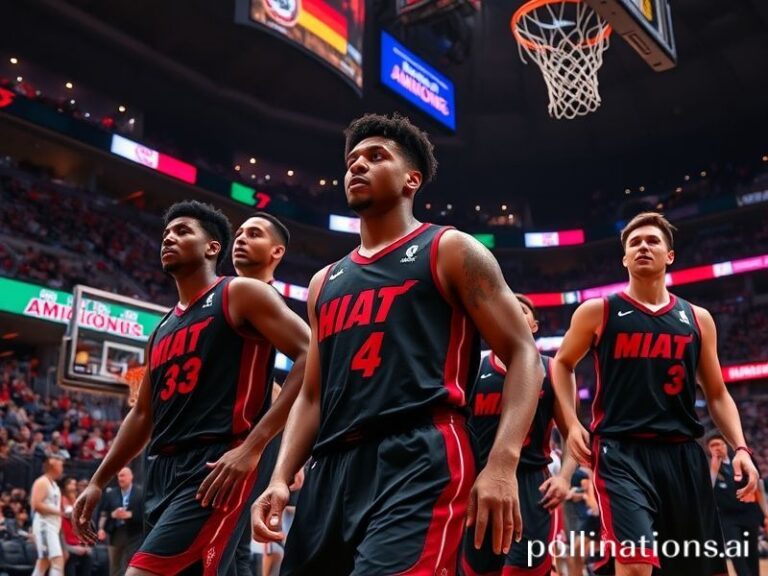Desert Gridiron Diplomacy: How U of A Football Became the World’s Most Entertaining Export of American Collapse
U of A Football: How a Desert College Team Became a Soft-Power Proxy in the Great American Decline
By Dmitri Volkov, Senior Correspondent, Dave’s Locker
TUCSON—On a planet where glaciers retreat faster than Russian conscripts and the global south negotiates BRICS membership while the north binge-streams apocalypse dramas, the University of Arizona Wildcats still run a quaint ritual called “Saturday football.” To the uninitiated abroad, this appears to be 22 scholarship students in shiny helmets colliding for the entertainment of 50,000 day-drunk suburbanites in a stadium named after a bank. Look closer, however, and you’ll find a tidy allegory for America’s current export strategy: loud, heavily branded, and increasingly reliant on international cash to keep the lights on.
The Wildcats open their 2024 campaign against New Mexico in a “neutral-site” game in San Diego—because nothing says collegiate purity like a 400-mile road trip to a city that thinks Tijuana is the suburbs. Tickets start at $79, roughly the monthly minimum wage in Honduras. Yet the athletic department just signed a beverage partnership with an Emirati conglomerate whose other holdings include two Qatari airlines and a Slovenian arms distributor. Somewhere in Doha, a sheik who’s never seen a college campus is now subsidizing your tailgate’s lime-flavored light beer. Globalization: 1, Amateurism: 0.
Across the Pacific, Chinese streaming platform iQiyi quietly renewed its Pac-12 digital rights for another season even after the conference imploded. Why? Because 1.4 billion potential viewers can’t get enough of American pageantry, especially when it involves shoulder pads and a marching band playing “Sweet Caroline” like the fall of Saigon never happened. In Beijing dormitories, engineering majors memorize Arizona’s two-deep depth chart the way their parents once memorized Mao’s quotations—proof that soft power works best when nobody admits it exists.
Europeans, ever sportingly superior, scoff at the 60-minute game bloated to four hours by instant-replay litigation. Yet Bundesliga clubs now hire the same motion-tracking companies that film Arizona’s practices, hoping to learn how to monetize shoulder injuries. Meanwhile, UA’s new offensive coordinator—fresh off a season in the CFL and a brief cameo in a Canadian insurance commercial—introduces run-pass option schemes borrowed from Japanese high-school rugby. If that sounds confusing, congratulations: you’ve grasped the essence of late-stage capitalism, where intellectual property is just a polite term for colonialism with analytics.
The roster itself is a miniature United Nations. There’s a 310-pound Samoan defensive tackle who lists his hometown as “Maui, but spiritually Auckland,” a French-Cameroonian cornerback who learned English via TikTok, and a walk-on kicker from Zagreb whose previous job was selling NFTs of medieval Croatian castles. They all share one common tongue: the language of Name-Image-Likeness deals. The Samoan’s Instagram plugging Tucson taco shops earns more than Fiji’s GDP per capita; the Croat shills VPNs to Balkan teens who dream of NCAA glory because European soccer academies already cut them at age 12. Somewhere, an IMF economist updates a white paper titled “Digital Diaspora Monetization in Collegiate Athletics.” He will receive tenure before any of these athletes graduate.
Of course, the Wildcats will probably finish 6-6, sneak into the Famous Idaho Potato Bowl, and lose by three touchdowns to a MAC school whose quarterback majored in agricultural futures. The game will be broadcast at 3 a.m. in Jakarta to a rapt audience of insomniac crypto traders. They’ll gamble on the over/under using offshore sites routed through Malta, then watch post-game interviews where 19-year-olds thank God, their nutritionist, and a blockchain-based hydration startup. Everyone wins; everyone loses; the scoreboard resets for another fiscal quarter.
In the end, U of A football matters not because it heralds geopolitical shifts, but because it packages them into digestible three-hour chunks with cheerleaders and corporate jingles. The desert stadium lights will blaze like a budget aurora borealis, convincing us that entropy can be outrun if you recruit fast enough. And maybe, for one autumn evening, it can. The rest of the world, accustomed to longer tragedies, will tune in for the spectacle, then quietly switch to a Champions League replay where the corruption is at least honest.







